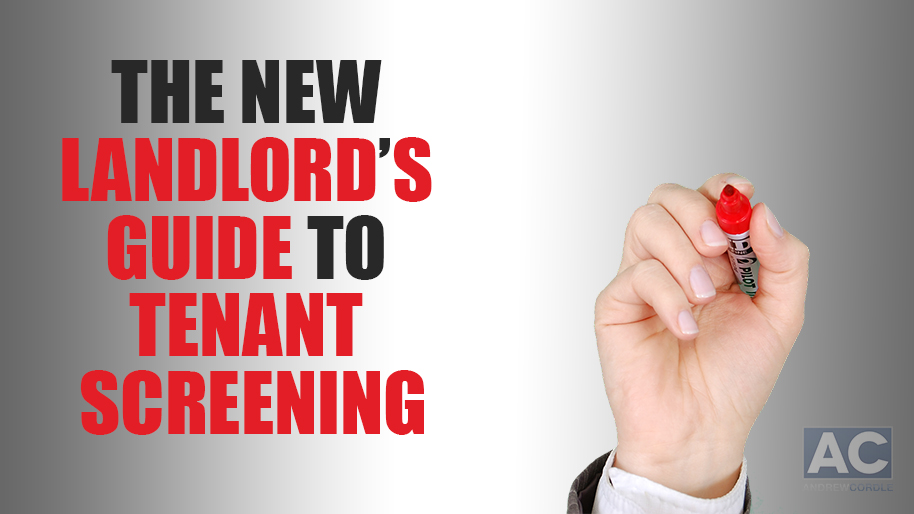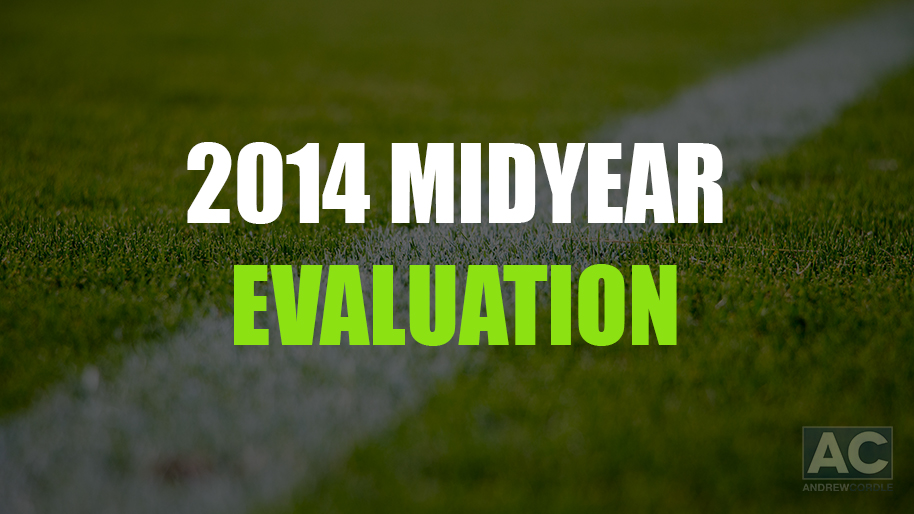The New Landlord’s Guide to Tenant Screening
May 4, 2015

Tenant Screening: Love it or hate it, you need to do it if you don’t want to loose your shirt. This guide will show you everything you need to know, and keep you safe from FHA violations too. Remember, we’re not your lawyer and this is not legal advice.

Screening tenants is about making sure you get the best tenants into your properties, by finding out everything there is to know about them. It’s more than just a credit score!
Establish your basic requirements
What do you want from your tenants?
Income: 3x the monthly rent
Credit: clear of collections
Employment: last 2 years, continuously employed.
Landlord references: positive
Evictions: never ever ever. If someone has been evicted within the FCRA reportable time frame, you don’t want them.
Crimes: No felonies, no sex offenders. Some landlords don’t like misdemeanors or violent misdemeanors. Always make sure to check with your state and local laws regarding arrest records, expunged convictions and the like. Regulation varies widely across locations.
Stop the bad tenant before they apply
Tenants who don’t meet requirements won’t often apply! Make sure all of your requirements are clearly stated in your Ads (Craigslist, Zillow, Trulia, Offline, Facebook, Apartments.com Rent.com etc) on your application form, and during your phone interviews as well!
Remember: Be impartial like a robot:
- Use an Application Form
- Communicate Requirements
- Use them for everyone
3. Start screening your prospective tenants
Employment Check:
Is the tenant gainfully employed? Can you verify that the company exists? Is the phone number of their supervisor a company land line? Are the W2s legit? Does the company show up on a service like the Work Number? Does the Tenant make enough money to pay your rent, with enough left over for all their other expenses? How long have they been working? Are there large, unexplainable gaps in employment over the past few years?
What if the tenant is not employed or their income is insufficient?
Your best bet is to reject them. If you can’t or everything else is clear, then you should get a co-signer on the lease. The co signer needs to meet all of the rental criteria themselves. No co signer? You can try a rental guarantee bond, but probably you should just move on.
Credit Check:
What is the tenant’s credit score? Are there any delinquencies, bankruptcies, collections or other bad marks on the credit report? Does the tenant regularly pay their bills on time? How often do they miss payments?
Tenant Rental Verification:
What do previous landlords say about the tenant? Were they respectful and meet all of the rules of their previous rentals? Go back as many rentals as possible. The current landlord may lie to you just to get rid of a problem tenant. If most references are good, accept the tenant. Bad landlord references should warrant a conversation with the tenant and usually a denial.
Search Eviction Records:
Make sure to search use a service (like PMGuardian, hint hint), that searches national evictions, as well as liens and judgements. Make sure to cover AKAs and maiden names. Be wary of similar sounding names who are not the same person. Remember that there is a reportable time period for eviction and other civil records under the FCRA.
If there are eviction records that belong the tenant, stop! Do not pass go, do not collect $200 and DO NOT RENT to this tenant, no matter what sob story they tell you.
How you approach this can depend on where you live and what you think about criminal justice system. Generally speaking, felonies, sex offenders and violent misdemeanors are a good reason to deny someone rent. Arrests from within 7 years without convictions are usable under the FCRA; state laws may vary, but if someone was not convicted there’s no reason not to rent to them.
A few things to remember: Different states have different time frames and requirements for reporting arrests and convictions. Some states (California, for example) are even trying to make it illegal to deny renting to someone because of a criminal record.
Obviously, no tenant is going to be 100% perfect, so deciding how close to perfection you will require is a personal choice. You can set stringent requirements, but these requirements mustn’t be discriminatory. If you’re rejecting a tenant because of results on a tenant screening report, make sure to send them an adverse action letter.
How to avoid Fair Housing complaints and lawsuits:
(Again, this is just general advice and should not be taken for legal advice. Don’t listen to things random companies or people try and tell you on the internet without doing your own fact checking. You’ve been warned).
Plenty more info is available on the Fair Housing Website, and your local tenant union or apartment association.
Treat renting like the business that it is.
Make decisions based on business reasons. Don’t make choices based on personal reasons.
You are entitled to reject applicants for pretty much any reason related to their inability to pay rent or follow your rules. For example, the following are completely legal reasons for disqualifying a prospective tenant:
bad credit histories, insufficient income, previous property damage, consistent late rent payments, criminal histories, poor job history.
- Illegal reasons to refuse to rent to a tenant:
Race, religion, national origin, gender, age, familial status, physical or mental disability (including recovering alcoholics and people with a past drug addiction). In many states also: sexual orientation.
Do not ask questions about anything related to the above mentioned protected classes:
This is harder then it seems. Don’t talk about family, or religion, your faith, anything that can be misconstrued as a violation of FHA.
Train your staff to understand the fair housing laws
As the property owner, you may be held legally responsible for your employees’ discriminatory statements or conduct, including sexual harassment. This includes real estate agents, property managers and their employees who work for you.
You can’t set different requirements for different people
If you set tougher standards for someone (for example, for members of a racial minority) you are violating federal laws and opening yourself up to lawsuits. If you give one person a break (such as lowering the security deposit for a single mother but not for other tenants), you’ll likewise risk a charge of discrimination from other tenants. You can, however, ask for a higher security deposit from someone with poor credit.













